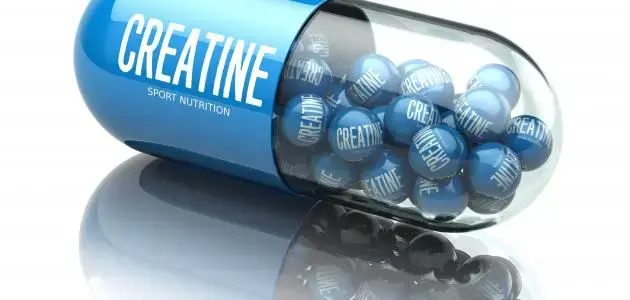What is Creatine?
Creatine is an organic nitrogenous compound obtained primarily through a diet rich in meat and fish. Vegetarians tend to have lower creatine levels since they avoid these animal sources. This deficiency can be compensated for by taking creatine supplements.
How Creatine is Produced
Creatine is mainly synthesized within the human body in the liver, pancreas, and kidneys. Additionally, certain amino acids—glycine, arginine, and methionine—are involved in its production. The total creatine concentration in the human body is estimated to be around 125 mmol/kg of skeletal muscle.
Effects of Creatine Deficiency
Currently, no proven harmful effects are linked directly to creatine deficiency. However, it can cause increased thirst due to water retention in muscle cells. The body requires about 1-2 grams of creatine daily from dietary sources like meat and fish. Vegetarians, lacking these sources, often experience significantly lower creatine levels.
Classification of Creatine
Creatine is not officially classified as a safe and effective drug by food and drug authorities because of limited comprehensive studies on its benefits and risks. Moreover, there are no standardized manufacturing facilities for creatine supplements. Nonetheless, it has recently gained popularity as a health supplement providing minerals and protein.
The Importance of Creatine
Creatine plays a vital role in building muscle mass and enhancing athletes’ endurance by supplying energy and strength. It is an indispensable supplement for many athletes, particularly bodybuilders. Creatine binds with phosphate in muscle cells to form phosphocreatine, which serves as an immediate energy source.
Despite its benefits, creatine consumption can cause thirst and, in some cases, may lead to kidney dysfunction or failure.
Difference Between Creatine and Creatinine
It is crucial to distinguish between creatine and creatinine. Creatinine is a toxic metabolite formed when creatine breaks down in acidic environments, especially in the stomach. Elevated creatinine levels can cause severe symptoms such as intense headaches, chronic diarrhea, and liver and kidney problems. In contrast, creatine is a necessary nitrogenous compound that supports muscle building and energy supply.
Leave a comment
Your email address will not be published. Required fields are marked *




